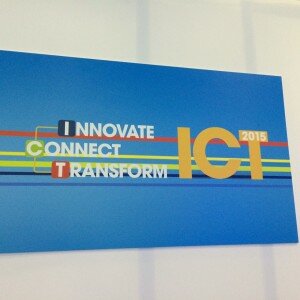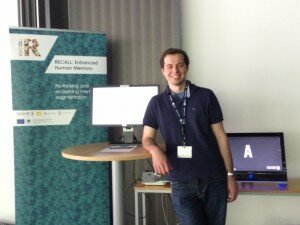Researchers from the Recall project recently discussed their work and participated in the European Commission’s ICT 2015 event. The event, held in Lisbon from 20- 22nd October 2015 with the theme ‘Innovate, Connect, Transform’ provided a unique opportunity to highlight the exciting vision of Recall, prompt new discussion around the topic of memory augmentation, and to help promote scientific exploration of augmented cognition in Europe.
22nd October 2015 with the theme ‘Innovate, Connect, Transform’ provided a unique opportunity to highlight the exciting vision of Recall, prompt new discussion around the topic of memory augmentation, and to help promote scientific exploration of augmented cognition in Europe.
As part of their participation in the event, the Recall project members hosted a 45-minute networking session on the topic of `Augmenting Human Cognition – ICT to support capture, reflection and recall’. The vision statement for this session — The time is ripe to attempt the creation of memory augmentation technology that provides the user with the experience of an extended and enhanced memory, but which is based on improvements in the collection, mining, and presentation of appropriate information to facilitate cued memory recall — attracted significant interest from attendees and the session was very well attended.
With approximately 50 attendees from 16 different countries, the event was a fantastic platform for exchanging ideas for advancing ICT and human cognition. The event built new connections between European researchers, innovators and decision makers interested in exploring the area of augmented human cognition. During the session participants worked together to develop the community’s understanding of the challenges, approaches, and possibilities in the space, as well as a shared awareness of work in this area across Europe. Participants generated a wealth of ideas for future research directions in the field and the level of discussion was intense. The feedback on the event was overwhelmingly positive with everyone agreeing that they had successfully networked with new people. We have made a comprehensive report on the event available for download: ICT 2015 Networking Event Report.

